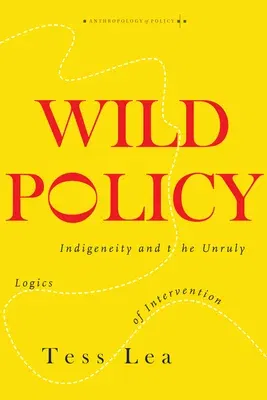Can there be good social policy? This book describes what happens to
Indigenous policy when it targets the supposedly 'wild people' of
regional and remote Australia. Tess Lea explores naturalized policy:
policy unplugged, gone live, ramifying in everyday life, to show that it
is policies that are wild, not the people being targeted. Lea turns the
notion of unruliness on its head to reveal a policy-driven world
dominated by short term political interests and their erratic,
irrational effects, and by the less obvious protection of long-term
interests in resource extraction and the liberal settler lifestyles this
sustains. Wild Policy argues policies are not about undoing the big
causes of enduring inequality, and do not ameliorate harms terribly well
either-without yielding all hope.
Drawing on efforts across housing and infrastructure, resistant
media-making, health, governance and land tenure battles in regional and
remote Australia, Wild Policy looks at how the logics of intervention
are formulated and what this reveals in answer to the question: why is
it all so hard? Lea offers readers a layered, multi-relational approach
called policy ecology to probe the related question, 'what is to be
done?' Lea's case material will resonate with analysts across the world
who deal with infrastructures, policy, technologies, mining,
militarization, enduring colonial legacies, and the Anthropocene.

